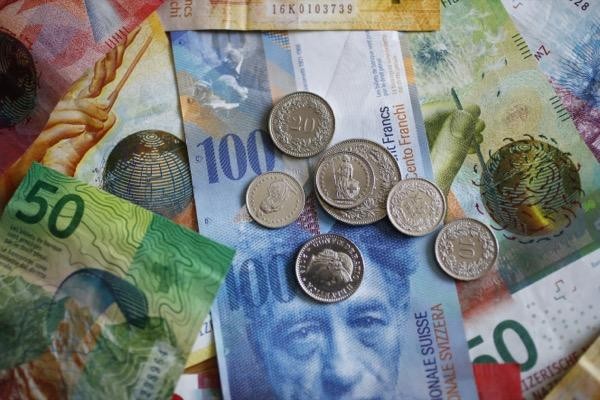
In the world of foreign exchange, the Swiss franc (CHF) has been making waves as one of the strongest currencies in recent times. Its performance against major currencies such as the US dollar (USD), euro (EUR), and British pound (GBP) has been noteworthy, especially considering the relatively conservative approach Switzerland has taken towards monetary policy.
Swiss strength: unique policy and political neutrality
Unlike the aggressive rate hikes seen in the US, the European Union, and Great Britain, the Swiss National Bank (SNB) has adopted a different strategy. Rather than solely relying on interest rate adjustments, the SNB has engaged in currency interventions by selling foreign currency reserves and purchasing the Swiss Franc. This has been a method to stabilize and even prop up the value of the CHF.
The Swiss Franc is also considered a “risk-off” currency, meaning it tends to appreciate during times of geopolitical uncertainty or market volatility. Historically, the CHF has been highly correlated with gold, which is often seen as a safe-haven asset during turbulent times. For instance, when gold prices surged above $2,000—an unusual event—the Swiss Franc also showed considerable strength.
This phenomenon can be partly attributed to Switzerland’s long-standing policy of neutrality in global conflicts, which has contributed to the perception of the Swiss franc as a stable and secure investment.
Forex dynamics
Forex trading is fundamentally about the relationships between currencies and the global economic landscape. While the US dollar often captures headlines due to the sheer size of the American economy and the volume of USD-based pairs, it’s essential for traders to consider the broader global context. This includes examining currency crosses like CHF/EUR, GBP/CHF, and CHF/JPY, which can provide a more nuanced view of currency dynamics.
In the past decade, the US Dollar has appreciated more than 20% against most major currencies. However, the Swiss franc stands out as an exception, with USD actually declining against the CHF during the same period. This divergence underscores the unique position of the Swiss franc in the global currency markets.
The SNB’s policy of maintaining a strong franc has implications for Switzerland’s economy, which relies heavily on imports. A robust CHF can lower the cost of imported goods and services, which is beneficial for a country that does not produce a wide array of commodities.
In conclusion, the Swiss franc’s strength, driven by Switzerland’s distinct monetary policy and its status as a safe-haven currency, presents both opportunities and challenges for traders. Its relative stability compared to other currencies may offer a lower-volatility option for those looking to diversify their forex portfolios or hedge against geopolitical risks. As global financial conditions evolve, the Swiss Franc will undoubtedly remain a currency of significant interest, demonstrating the importance of understanding the intricacies of each currency and its place within the global economic order.



